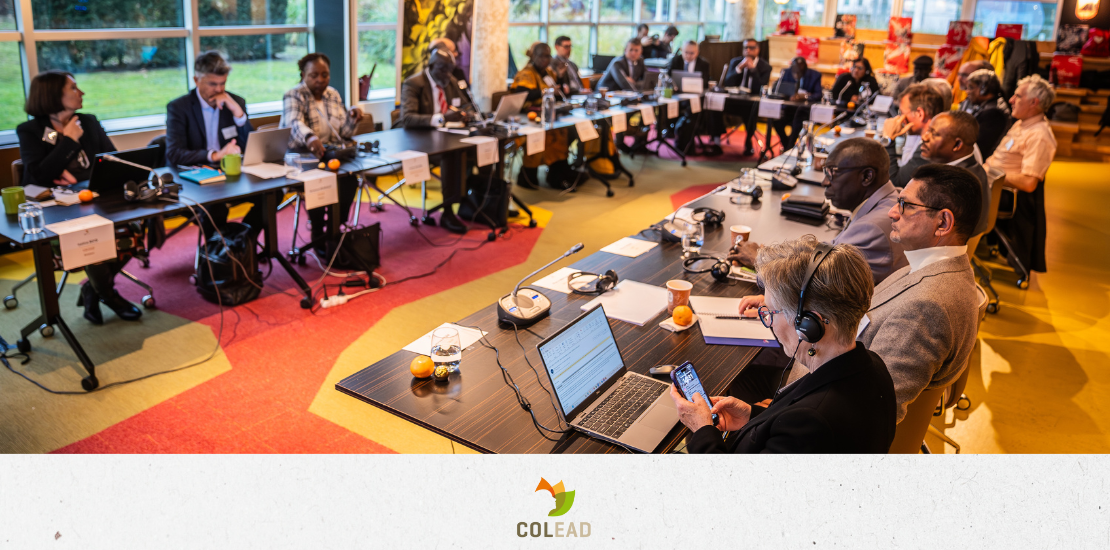- 20/12/2024
- Posted by: Sandra Borma
- Category: News

The COLEAD 2024 Consultative Committee, held on the 4th of December in Brussels and online, in a shorter format than in 2023 but extended to include more partners, marked an important strategic step by launching a participatory process to develop the COLEAD 2030 strategy. Bringing together key stakeholders (board members, technical and financial partners and COLEAD management) in an international context marked by geopolitical and climate challenges, this committee confirmed the priorities for strengthening COLEAD’s impact on the Sustainable Development Goals (SDG).
The review of COLEAD’s activities in 2024, presented on this occasion, highlighted the progress made, particularly in terms of concrete results in the implementation of programmes and improvements in the technical resources available to partner beneficiaries, as well as the strengthening of the organisation and, in particular, its network of communities. Special attention was also paid to projecting the planned development of the organisation in the coming years, in order to improve the efficiency and impact of its actions on the SDG. To effectively prepare for the period leading up to 2030, COLEAD has employed the Theory of Change to illustrate its holistic approach. This framework not only clarifies the organization’s SDG-related actions at macro, meso, and micro levels but also highlights the expected contributions of the stakeholders who will be engaged and consulted.
The strategic alignment of COLEAD’s actions with global EU initiatives, such as the Global Gateway and the Green Deal, was confirmed at the CC 2024 by the various partners represented (EC, OACPS, AFD, FAO, STDF-WTO…). The EU also encouraged COLEAD to further increase its impact and relevance and invited it to work more closely with innovative international funding organisations such as IFAD and the World Bank.
A call to action was issued to all stakeholders represented in the CC to actively participate in the iterative process of developing the COLEAD 2030 strategy, which will start in early 2025. This will essentially be an invitation to contribute to the co-construction of an ambitious, inclusive strategy, aligned with local and global priorities, over several months through an online interface and consultations.
Overall, the Committee confirmed – if confirmation were needed – the importance of partnerships, collaborative approaches and stakeholder input in building an ambitious, inclusive and impact-driven strategy. Discussions also highlighted the need for COLEAD to continue to strengthen itself in order to cope with the growing complexity and thus reinforce its role as a key player in the sustainable development of agri-food systems. At the end of this CC 2024, COLEAD looks forward with optimism to defining its 2030 strategy and consolidating its mission for greater global impact.





